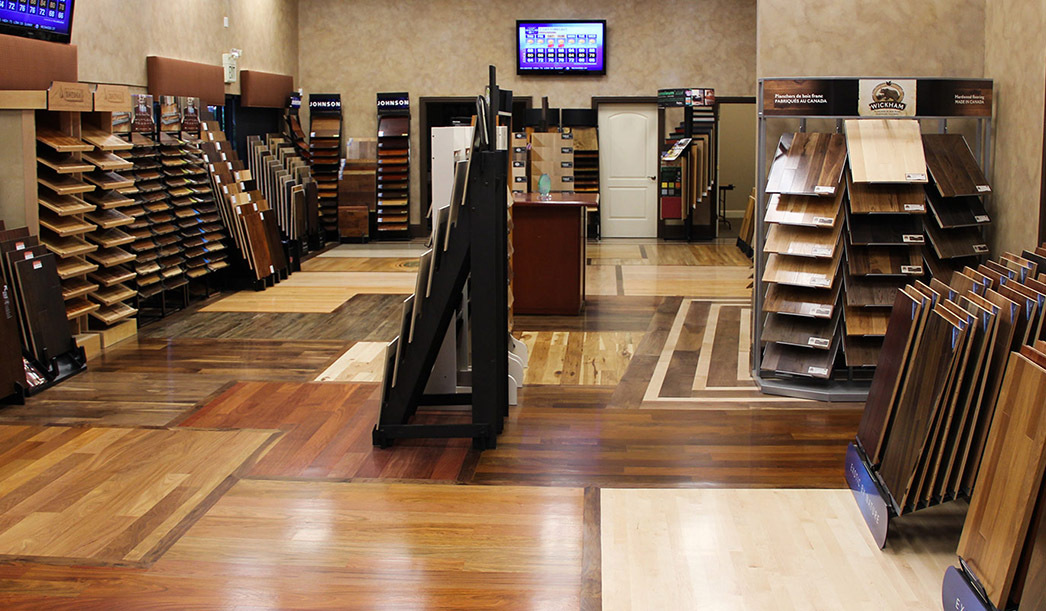Hardwood flooring hasn't been around forever. When did it make its debut, and how did it rise to popularity? Here's a bit of fascinating history about wood floors.
Hardwood Floors Debut
Hardwood flooring didn't make its debut until the 1600s. Before that, many homes simply had dirt that was smoothed over as their floor, and guests were asked to take their shoes off so they wouldn't create mud or kick up the dusty earth. In 1625, the wealthy started incorporating wood flooring with ornate, elegant designs such as French parquetry and marquetry patterns. The intricate designs during this era were time-intensive to create, with craftsmen using multiple species and hand scraping, sanding, finishing and waxing the wood flooring by hand.
Wood Floors in the New World
As Europeans began settling in America, many colonists used the abundant wood resources to build homes complete with wood flooring. These floors weren't finished, and although some chose to create patterns on their floor with the wood, many used boards of random widths and lengths; comfort, rather than style, was the main focus for these floors.
Hardwood Flooring Becomes Mass Produced
In the late 1800s and early 1900s, hardwood floors began to be mass produced. The ornate parquetry styles were still reserved for the wealthy, but the creation of the "wood carpet" allowed anyone with basic carpentry skills to install a new hardwood floor. As Flooring Therapy explains, the first wood carpet "consisted of 1 ½” wide x 5/16” thick wood slats glued to a heavy cotton canvas. The floor would be rolled and tacked down about every foot. It came in rolls that were 3 feet wide and the manufacturer offered several installation options that created different designs. The floor then had to be filled, sanded and finished. In essence, this was the first mass produced 'do-it-yourself' hardwood floor." Sadly, wood carpet didn't live up to the hype. It wasn't as durable as it claimed, it was riddled with cracks and there was splitting and creaking throughout the floor.
This is also the time that tongue and groove wood flooring was created, although it was only available in the wealthiest homes. The boards fit together more like a puzzle, which got rid of gaps and made the floor more level. The herringbone pattern became very popular; many of the floors created at this point are still in use. In fact, San Jose Harwood Floors has extensive experience restoring historic floors like these.
The Rise of Alternative Flooring
The 1920s saw the rise of alternative flooring options, such as cork and linoleum, which were easier to install and maintain. Then, in the 1940s, broadloom carpet entered the scene. At the close of World War II, new houses built for veterans included the cost of this carpet, so the wood floors laid in the new homes was promptly covered with carpet. The hardwood flooring industry struggled to survive amidst the various new materials available to homeowners.
Hardwood Floors Make a Comeback
In the mid-1990s, many homeowners began going back to wood floors as an option for their home. During the time it struggled to survive, the hardwood flooring industry focused on becoming more environmentally friendly and creating more durable finishes. Now, more than ever, "old-world" floor making methods are on the rise, with many consumers following the trend of distressed/hand scraped styles and using reclaimed wood.
Do you have "antique" wood floors that need restoring? San Jose Hardwood Floors specializes in historical hardwood flooring restoration in addition to installing new wood flooring for your dream home. Contact us to find out more.
Photo Credit: Mirage floors


